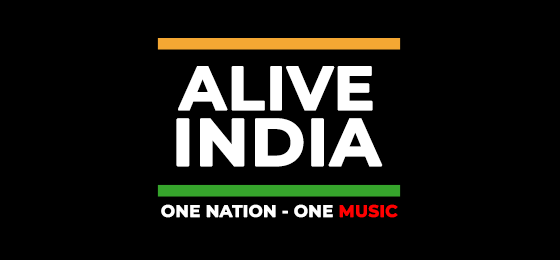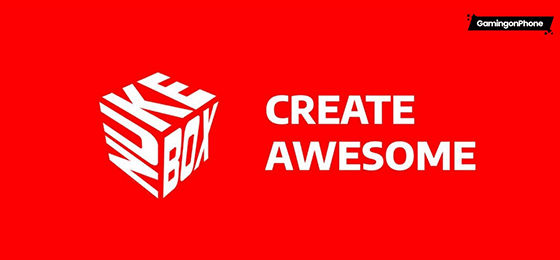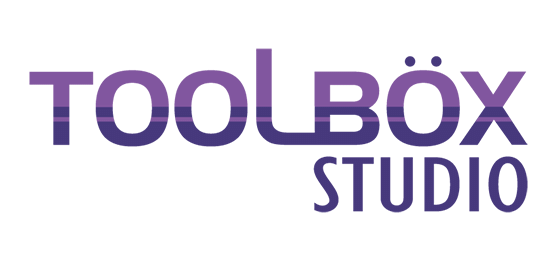STUDENTS SUCCESFULLY PLACED AT









When stepping into a new environment, you are often unsure about what to expect. This section will address most of your apprehensions, and will help you gain a better insight on what to expect from us.
BCA in Artificial Intelligence and Data Science is an undergraduate program that combines computer science with specialized courses in AI and data science. It prepares students for careers in these cutting-edge fields by providing a strong foundation in programming, machine learning, data analysis, and AI algorithms.
Typically, candidates must have completed 10+2 with mathematics as a subject. Some institutions may also require a minimum percentage in the qualifying examination.
The program usually spans three years, divided into six semesters.
Graduates can pursue roles such as Data Scientist, Machine Learning Engineer, AI Research Scientist, Business Intelligence Analyst, Data Engineer, and AI Ethicist in various industries including technology, healthcare, finance, and retail.
Essential skills include proficiency in programming languages (Python, R, Java), understanding of machine learning algorithms, data analysis and visualization, knowledge of big data technologies, and strong statistical and mathematical foundations.
Yes, certifications like Google’s Professional Data Engineer, Microsoft’s Azure AI Engineer, and Coursera’s Machine Learning by Andrew Ng can significantly enhance your career prospects.
Practical experience is crucial. Internships, personal projects, and open-source contributions help build a strong portfolio and provide hands-on experience with real-world problems.
Showcase your projects, internships, and any relevant work on platforms like GitHub or a personal website. Include detailed descriptions, code snippets, and results to demonstrate your skills and expertise.
Join professional associations, attend industry conferences, webinars, and local meetups. Engage with online communities and forums related to AI and data science.
Follow industry blogs, subscribe to newsletters, take online courses, and read research papers from conferences like NeurIPS, ICML, and CVPR.
Use job portals like LinkedIn, Indeed, and specialized sites like Kaggle Jobs and AI Jobs Board. Ensure your resume and LinkedIn profile are up-to-date and highlight your skills and experiences.
Typical responsibilities include analyzing complex data sets, developing predictive models, creating data visualizations, and communicating insights to stakeholders.
Industries such as technology, healthcare, finance, retail, automotive, and e-commerce are actively hiring AI and Data Science professionals.
The demand for AI and Data Science professionals is expected to grow significantly as more industries adopt AI technologies and data-driven decision-making processes.
Ethics is crucial in ensuring that AI technologies are developed and used responsibly. AI Ethicists work on addressing issues related to bias, privacy, and the societal impact of AI.
BCA in Cyber Security is an undergraduate program that combines computer science with specialized courses in cyber security. It prepares students for careers in protecting digital systems and networks from cyber threats.
Typically, candidates must have completed 10+2 with mathematics as a subject. Some institutions may also require a minimum percentage in the qualifying examination.
The program usually spans three years, divided into six semesters.
Graduates can pursue roles such as Cyber Security Analyst, Ethical Hacker, Information Security Manager, Security Architect, Digital Forensics Analyst, and Compliance Officer in various industries including finance, healthcare, government, and technology.
Essential skills include network security, cryptography, programming (Python, Bash), threat analysis, incident response, and knowledge of security tools (SIEM, IDS/IPS).
Yes, certifications like Certified Ethical Hacker (CEH), Certified Information Systems Security Professional (CISSP), and CompTIA Security+ can significantly enhance your career prospects.
Practical experience is crucial. Internships, personal projects, and open-source contributions help build a strong portfolio and provide hands-on experience with real-world problems.
Showcase your projects, internships, and any relevant work on platforms like GitHub or a personal website. Include detailed descriptions, code snippets, and results to demonstrate your skills and expertise.
Join professional associations, attend industry conferences, webinars, and local meetups. Engage with online communities and forums related to cyber security.
Follow industry blogs, subscribe to newsletters, take online courses, and read research papers from conferences like Black Hat, DEF CON, and RSA Conference.
Use job portals like LinkedIn, Indeed, and specialized sites like CyberSecJobs and InfoSec Jobs. Ensure your resume and LinkedIn profile are up-to-date and highlight your skills and experiences.
Typical responsibilities include monitoring and protecting an organization's computer systems and networks from cyber threats, analyzing security breaches, and implementing security measures.
Industries such as finance, healthcare, government, technology, and consulting are actively hiring Cyber Security professionals.
The demand for Cyber Security professionals is expected to grow significantly as cyber threats become more sophisticated and prevalent across all industries.
Ethics is crucial in ensuring that cyber security practices are conducted responsibly and that privacy and data protection are maintained. Ethical considerations are integral to roles like ethical hacking and compliance.
BCA in Cloud Computing is an undergraduate program that combines computer science with specialized courses in cloud computing. It prepares students for careers in managing and deploying cloud-based solutions.
Typically, candidates must have completed 10+2 with mathematics as a subject. Some institutions may also require a minimum percentage in the qualifying examination.
The program usually spans three years, divided into six semesters.
Graduates can pursue roles such as Cloud Architect, Cloud Engineer, Cloud Security Specialist, DevOps Engineer, Cloud Consultant, and Data Engineer (Cloud) in various industries including technology, finance, healthcare, and e-commerce.
Essential skills include proficiency in cloud platforms (AWS, Azure, Google Cloud), virtualization, programming (Python, Java), cloud security, and automation tools (Terraform, Ansible).
Yes, certifications like AWS Certified Solutions Architect, Microsoft Certified: Azure Solutions Architect Expert, and Google Professional Cloud Architect can significantly enhance your career prospects.
Practical experience is crucial. Internships, personal projects, and open-source contributions help build a strong portfolio and provide hands-on experience with real-world problems.
Showcase your projects, internships, and any relevant work on platforms like GitHub or a personal website. Include detailed descriptions, code snippets, and results to demonstrate your skills and expertise.
Join professional associations, attend industry conferences, webinars, and local meetups. Engage with online communities and forums related to cloud computing.
Follow industry blogs, subscribe to newsletters, take online courses, and read research papers from conferences like AWS re:Invent , Google Cloud Next, and Microsoft Ignite.
Use job portals like LinkedIn, Indeed, and specialized sites like CloudCareers and CloudJobs. Ensure your resume and LinkedIn profile are up-to-date and highlight your skills and experiences.
Typical responsibilities include designing and implementing cloud solutions, ensuring scalability and security, and collaborating with development and operations teams.
Industries such as technology, finance, healthcare, e-commerce, and consulting are actively hiring Cloud Computing professionals.
The demand for Cloud Computing professionals is expected to grow significantly as more organizations migrate to cloud-based solutions and adopt cloud-native technologies.
Innovation is crucial in driving the evolution of cloud technologies, enabling new services, improving efficiency, and enhancing security. Cloud professionals are at the forefront of developing and implementing innovative solutions.
BCA in Data Analytics and Business Intelligence is an undergraduate program that combines computer science with specialized courses in data analytics and business intelligence. It prepares students for careers in analyzing data and deriving actionable insights for business decision-making.
Typically, candidates must have completed 10+2 with mathematics as a subject. Some institutions may also require a minimum percentage in the qualifying examination.
The program usually spans three years, divided into six semesters.
Graduates can pursue roles such as Data Analyst, Business Intelligence Analyst, Data Scientist, Data Engineer, Business Analyst, and Data Visualization Specialist in various industries including finance, healthcare, retail, and technology.
Essential skills include proficiency in data analysis, programming (Python, R, SQL), data visualization, machine learning, and business acumen.
Yes, certifications like Certified Analytics Professional (CAP), Microsoft Certified: Data Analyst Associate, and Tableau Desktop Specialist can significantly enhance your career prospects.
Practical experience is crucial. Internships, personal projects, and open-source contributions help build a strong portfolio and provide hands-on experience with real-world problems.
Showcase your projects, internships, and any relevant work on platforms like GitHub or a personal website. Include detailed descriptions, code snippets, and results to demonstrate your skills and expertise.
Join professional associations, attend industry conferences, webinars, and local meetups. Engage with online communities and forums related to data analytics and business intelligence.
Follow industry blogs, subscribe to newsletters, take online courses, and read research papers from conferences like KDD, SIGMOD, and ICIS.
Use job portals like LinkedIn, Indeed, and specialized sites like DataJobs and BI Jobs. Ensure your resume and LinkedIn profile are up-to-date and highlight your skills and experiences.
Typical responsibilities include analyzing data to identify trends, creating reports and dashboards, and providing insights to support business decisions.
Industries such as finance, healthcare, retail, technology, and consulting are actively hiring Data Analytics and Business Intelligence professionals.
The demand for Data Analytics and Business Intelligence professionals is expected to grow significantly as more organizations adopt data-driven decision-making processes.
Innovation is crucial in developing new analytical techniques, improving data visualization, and enhancing the accuracy and efficiency of business intelligence tools. Professionals in this field are at the forefront of driving these innovations.
BCA in Multimedia is an undergraduate program that combines computer science with specialized courses in multimedia. It prepares students for careers in creating and managing digital content, including graphics, animations, and web development.
Typically, candidates must have completed 10+2 with mathematics as a subject. Some institutions may also require a minimum percentage in the qualifying examination.
The program usually spans four years, divided into eight semesters.
Graduates can pursue roles such as Multimedia Designer, Web Developer, Digital Marketing Specialist, UI/UX Designer, Animator, and Media Production Specialist in various industries including advertising, media, entertainment, and technology.
Essential skills include proficiency in programming (C, C++, Python, Java), web development (HTML, CSS, JavaScript), graphic design, animation, video editing, and UI/UX design.
Yes, certifications like Adobe Certified Expert (ACE), Certified Web Designer, and Google Analytics Certification can significantly enhance your career prospects.
Practical experience is crucial. Internships, personal projects, and open-source contributions help build a strong portfolio and provide hands-on experience with real-world problems.
Showcase your projects, internships, and any relevant work on platforms like Behance or a personal website. Include detailed descriptions, design concepts, and results to demonstrate your skills and expertise.
Join professional associations, attend industry conferences, webinars, and local meetups. Engage with online communities and forums related to multimedia.
Follow industry blogs, subscribe to newsletters, take online courses, and read research papers from conferences like SIGGRAPH and CHI.
Use job portals like LinkedIn, Indeed, and specialized sites like Behance Jobs and Dribbble Jobs. Ensure your resume and LinkedIn profile are up-to-date and highlight your skills and experiences.
Typical responsibilities include creating visual content for websites, advertisements, and other digital platforms, designing graphics, animations, and videos, and collaborating with marketing and development teams.
Industries such as advertising, media, entertainment, technology, and e-commerce are actively hiring Multimedia professionals.
The demand for Multimedia professionals is expected to grow significantly as more organizations adopt digital content strategies and enhance their online presence.
Creativity is crucial in producing innovative and engaging multimedia content. Professionals in this field are at the forefront of driving creative solutions and enhancing user experiences.
A career in multimedia and digital content creation involves creating, managing, and innovating digital content such as graphics, animations, videos, and web applications. It spans various industries including advertising, media, entertainment, and technology.
Typically, candidates should have a background in computer science, graphic design, or a related field. Some roles may require specific technical skills or certifications.
The career path can vary, but it often starts with roles like Multimedia Designer or Web Developer, progressing to specialized roles like UI/UX Designer, Technical Director, or Media Production Specialist.
Graduates can pursue roles such as Multimedia Designer, Web Developer, Digital Marketing Specialist, UI/UX Designer, Technical Director, Animator, and Media Production Specialist in various industries including advertising, media, entertainment, and technology.
Essential skills include proficiency in programming, web development, graphic design, understanding of media production pipelines, and strong soft skills like creativity, communication, and attention to detail.
Yes, certifications in areas like UI/UX design, digital marketing, or media production can significantly enhance your career prospects.
Practical experience is crucial. Internships, personal projects, and open-source contributions help build a strong portfolio and provide hands-on experience with real-world problems.
Showcase your projects, internships, and any relevant work on platforms like Behance or a personal website. Include detailed descriptions, design concepts, and results to demonstrate your skills and expertise.
Join professional associations, attend industry conferences, webinars, and local meetups. Engage with online communities and forums related to multimedia.
Follow industry blogs, subscribe to newsletters, take online courses, and read research papers from relevant industry conferences.
Use job portals like LinkedIn, Indeed, and specialized sites like Behance Jobs and Dribbble Jobs. Ensure your resume and LinkedIn profile are up-to-date and highlight your skills and experiences.
Typical responsibilities include overseeing the technical aspects of media production, ensuring smooth workflows, troubleshooting technical issues, and optimizing production processes.
Industries such as advertising, media, entertainment, technology, and e-commerce are actively hiring professionals in this field.
The demand for professionals in this field is expected to grow significantly as more organizations adopt digital content strategies and enhance their online presence.
Creativity is crucial in producing innovative and engaging multimedia content. Professionals in this field are at the forefront of driving creative solutions and enhancing user experiences.